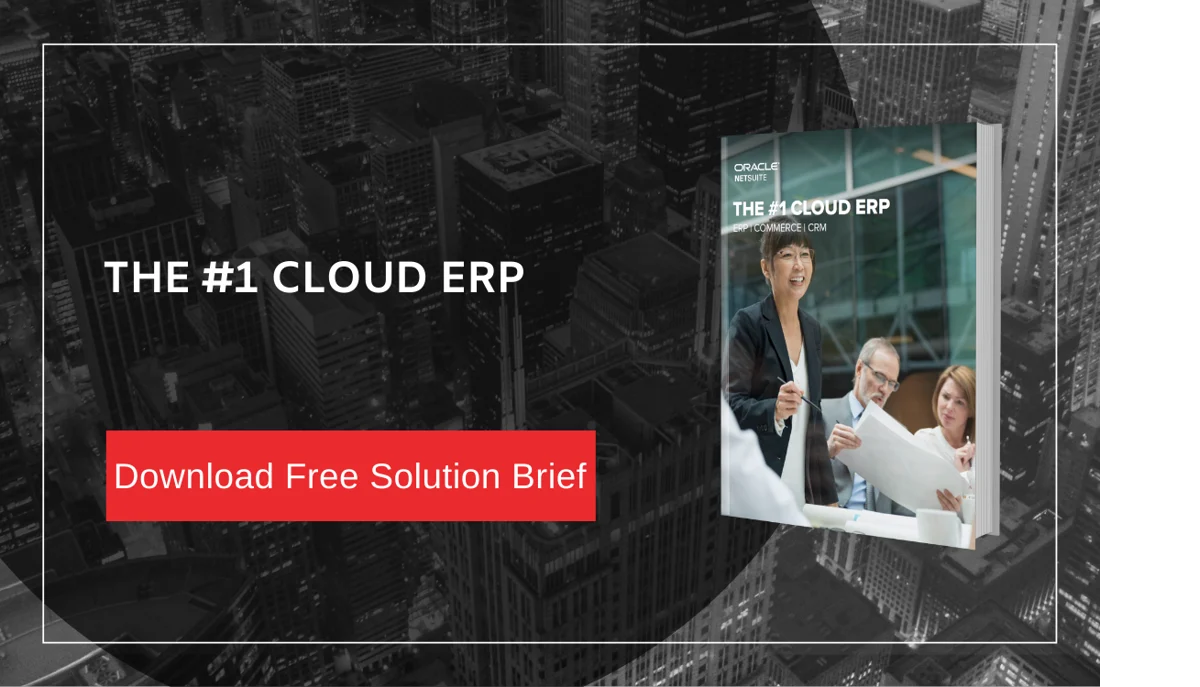As small- and medium-sized enterprises (SMEs) experience rapid growth, they often find themselves outgrowing their initial business systems. While a basic accounting software like Xero may suffice in the early stages, SMEs eventually require a more comprehensive solution to manage their expanding operations effectively.
This is where enterprise resource planning (ERP) software come into play. Two popular cloud-based options for growing businesses are Oracle NetSuite and Workday. While both offer a wide range of features and functionalities, they each have their own strengths and weaknesses.
In this blog post, we'll dive deeper into the key differences between NetSuite and Workday, comparing their features, pricing, and ease of use. We'll also explore the factors SMEs should consider when deciding which ERP software is the best fit for their unique business needs and growth trajectory.
- Key Features And Benefits Of Workday
- Key Features And Benefits of NetSuite
- Comparison: NetSuite vs. Workday
The Key Features and Benefits of Workday

Screenshot of Workday's interface. Source: Workday
Workday is a comprehensive, cloud-based enterprise resource planning (ERP) system that offers a wide range of features and benefits for growing SMEs. Here are some key aspects that make Workday a compelling choice:
Robust Human Capital Management (HCM)
Workday’s selling point is in its robust HCM functionalities, offering tools for talent management and onboarding, to performance management and succession planning. This helps its customers ensure that every aspect of their employee lifecycle is closely managed and optimised.
Strong Financial Planning Capabilities
Workday is also known for its strength in financial planning, with advanced forecasting, budgeting, and financial analytics features. This provides customers with real-time insights, delivered through a user-friendly interface to help decision-makers make informed business decisions.
Integration Capabilities
Workday offers a robust integration platform called Workday Integration, which facilitates seamless connections with a wide array of third-party applications. This enables its customers to enable data flow between Workday and other critical business systems such as CRM, marketing automation, and specialised industry tools.
Now, let’s see what Oracle NetSuite ERP has to offer for fast-growing SMEs.
The Key Features and Benefits Of NetSuite

Screenshot of Oracle NetSuite's interface on mobile devices.
As a leading cloud-based ERP solution, NetSuite offers several key advantages over Workday that make it the better choice for growing SMEs:
Robust Accounting and Supply Chain Management
NetSuite is known for its comprehensive built-in accounting capabilities, which provides real-time financial reporting and streamlined financial processes that handles complex financial data well. This makes it the preferable solution for businesses with complex accounting needs.
In addition, its supply chain management capabilities are also strong, and allows customers to manage their entire supply chain within a single platform. This provides businesses with the necessary clarity and agility to respond to supply chain disruptions, and resolve them quickly and effectively.
Integration With Third-party Apps
NetSuite shines in its integration ecosystem, thanks to its SuiteApps marketplace. Through SuiteApps, customers can download and install third-party apps which are designed to meet general business needs, as well as a wide range of industry-specific needs
Scalability And Flexibility
Thanks to its cloud-based architecture, NetSuite can easily be scaled in line with the business growth of an SME, with additional capability added to accommodate the increasing number of end users as its business operations expands.
The capabilities of NetSuite can also be extended with add-ons such as NetSuite OneWorld, allowing it to support any growth plans an SME might pursue, such as expansions to overseas markets.
NetSuite vs. Workday: A Head-to-Head Comparison
|
|
NetSuite |
Workday |
|
Features and Functionalities |
Robust accounting and supply chain management capabilities |
Human capital management (HCM) and financial planning |
|
Scalability |
Modular structure offers better scalability, making it more suitable for fast-growing SMEs |
Designed for larger enterprises, and doesn’t scale as effectively with the growth of SMEs |
|
Customisation |
Highly customisable and adaptable to unique business needs |
Comprehensive approach to integration with third-party apps |
|
User Ratings |
Has a larger number of reviews, reflecting its broader user base |
Scores similarly to NetSuite, but has much fewer user reviews. |
|
Pricing |
Lower initial cost, more suitable for SME budgets |
Higher initial costs, designed for the budgets of large enterprises |
While both NetSuite and Workday are cloud-based ERP solutions, they have distinct strengths and target different business priorities.
Features and Functionalities
NetSuite offers robust financial management capabilities, including include real-time visibility into financial performance, automated billing and revenue recognition, and advanced reporting and analytics. It also offers a more comprehensive set of supply chain management tools, such as inventory management, demand planning, and order fulfillment automation.
Workday emphasizes HCM for larger enterprises, offering user-friendly tools for talent management, payroll, and workforce planning. It also provides robust financial planning capabilities, and overall positions itself as a leader for large enterprise solutions.
Scalability
NetSuite's modular structure offers better scalability, allowing fast-growing SMEs to add or modify modules as they expand without disrupting existing operations.
In contrast, Workday is primarily designed for larger enterprises with established processes, making it less scalable for the needs of fast-growing SMEs.
Customisation
NetSuite is highly customisable and adaptable to unique business needs, offering a flexible platform that can be tailored to specific industry requirements and business processes. This flexibility enables SMEs to modify the system to match their unique business needs.
With the Workday Integration platform, Workday is similarly capable of enabling data flow with other critical business systems such as CRM, marketing automation, and specialised industry tools.
User Ratings
Both NetSuite and Workday have received positive user ratings. However, it's important to note that NetSuite has a much larger number of reviews,
This reflects the fact that NetSuite is designed for SMEs, and thus has a much broader user base than Workday, which was designed first and foremost for large enterprises.
Pricing
NetSuite comes at a lower initial cost, and offers different editions based on the size and business needs of the business. This provides SMEs with value for money.
On the other hand, Workday positions itself as a solution for larger enterprises with extensive HR management needs. This implies a higher price point which might be more suitable for larger budgets.
Ultimately, the choice between NetSuite and Workday depends on a business’s specific needs, size, and growth plans at the current point in time. NetSuite's robust functionality and scalability make it a better investment for SMEs, as opposed to Workday which is geared towards fulfilling the needs of larger businesses with higher head counts.
What’s The Better Choice For SMEs Between NetSuite And Workday?

While NetSuite and Workday are both powerful cloud-based ERP software, they cater to different business needs and sizes. For fast-growing SMEs looking to upgrade from basic accounting software, NetSuite emerges as the more suitable choice.
NetSuite's robust accounting and supply chain management capabilities, coupled with its scalability and customization options, make it an ideal platform for SMEs experiencing rapid growth. Its modular structure allows businesses to add functionalities as they expand, without disrupting existing operations.
On the other hand, Workday, with its focus on HCM and financial planning for larger enterprises, may not be as cost-effective or scalable for SMEs. Its higher price point and design for established processes make it less adaptable to the dynamic needs of growing businesses.
If you've decided that your SME has outgrown its current business systems and needs a more comprehensive ERP solution, NetSuite can be an excellent choice. It offers the features, scalability, and customizability needed to support your growing business needs.
However, before making the transition to NetSuite, it's crucial to review and optimise your existing business processes. This ensures a smooth transition and helps you maximize the benefits of NetSuite's advanced features. The migration process involves several steps, including data preparation, system configuration, data migration, testing, and training.
To ensure a seamless transition to NetSuite, it's advisable to work with an experienced Oracle NetSuite partner. They can guide you through the process, helping you avoid common pitfalls and ensuring that the new system is tailored to your specific business needs.
If you're ready to upgrade your business to a more robust ERP solution like NetSuite, we're here to help. Contact us to learn how we can assist you in making this important transition. Give us a call at +65 6323 0901, or fill out our contact form, and our consultants will get in touch with you shortly.
Otherwise, if you’d like to be more certain of whether NetSuite is the right choice for your SME’s next ERP software, click on the image below to find out more today.




